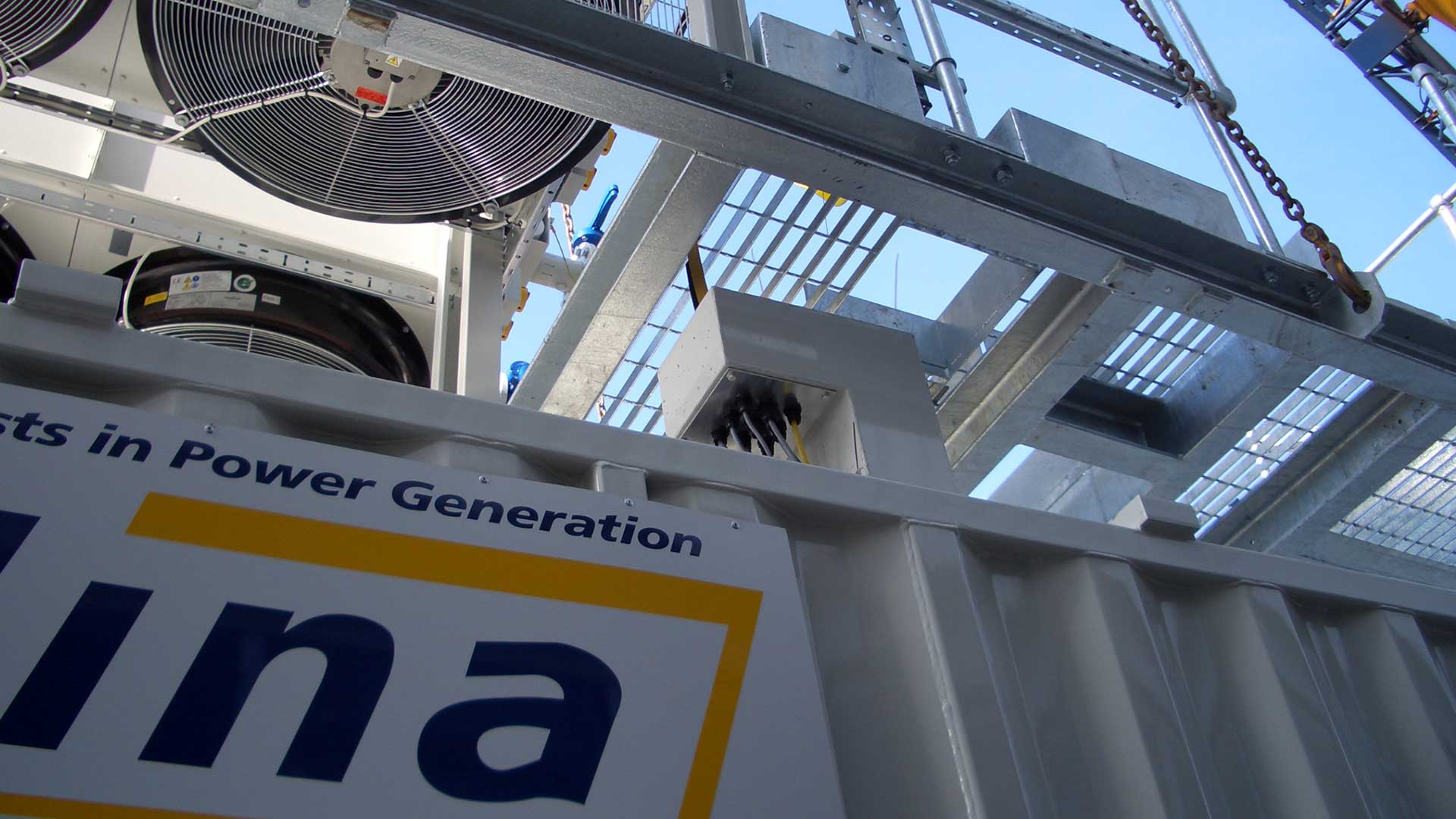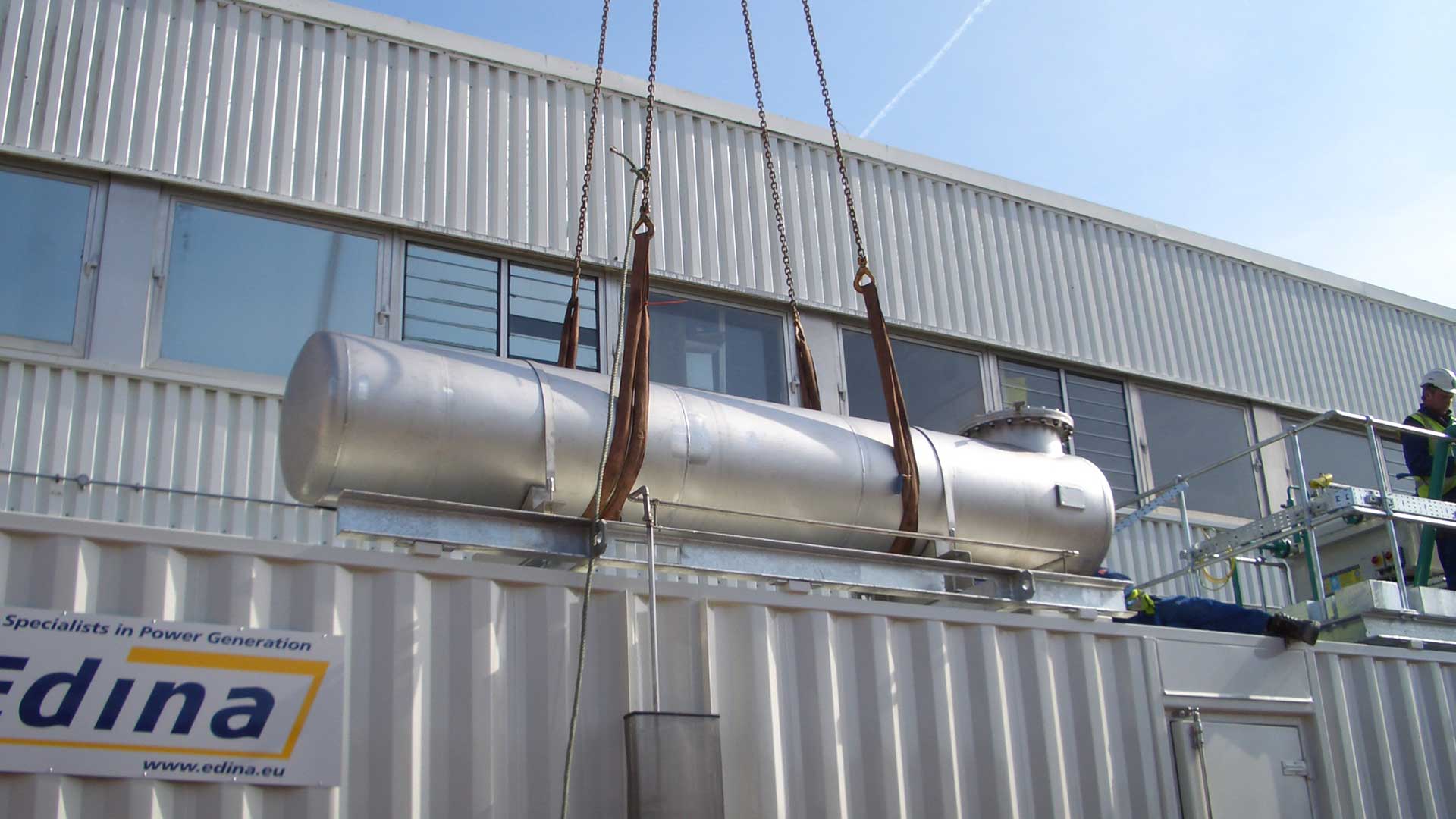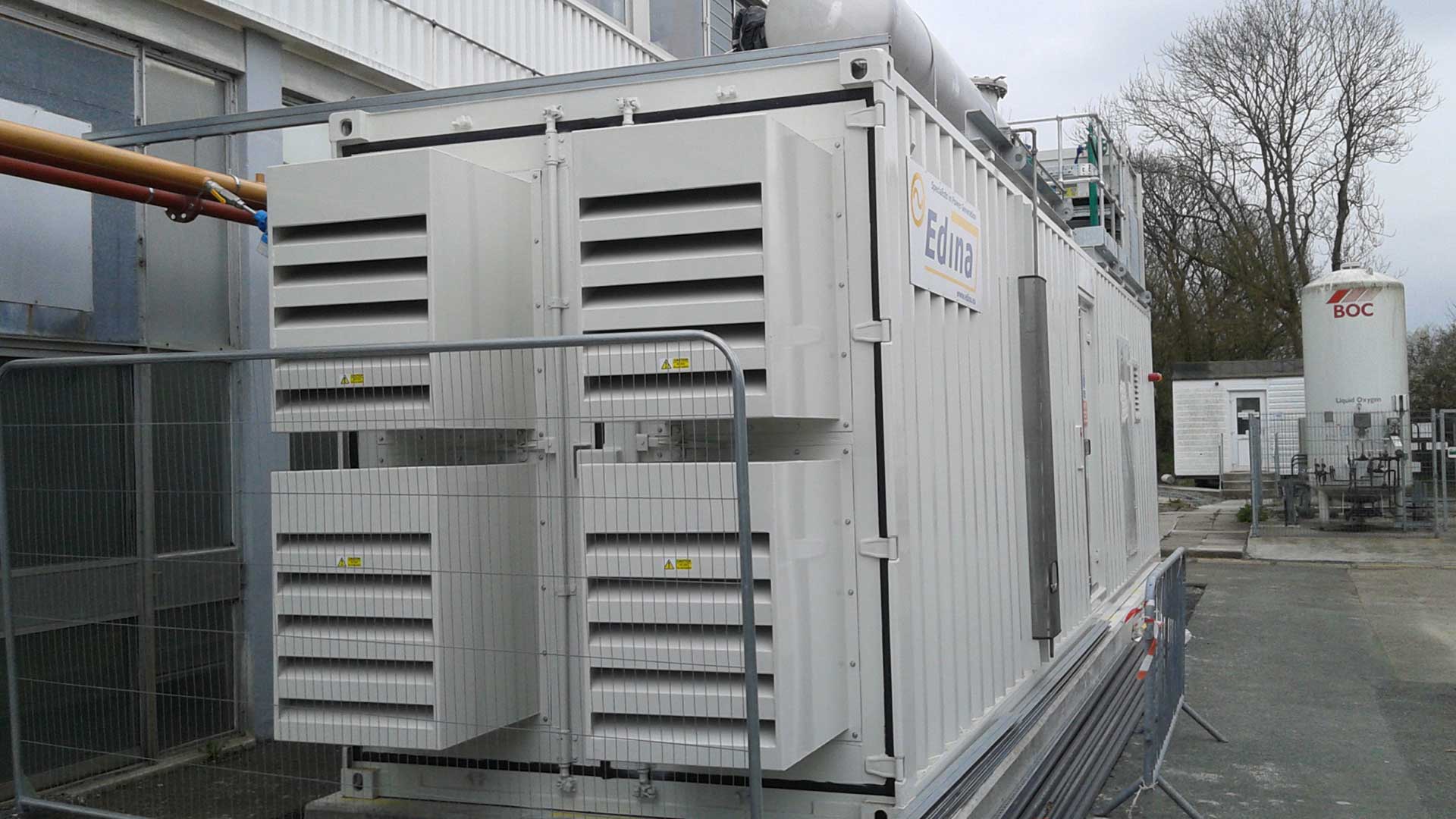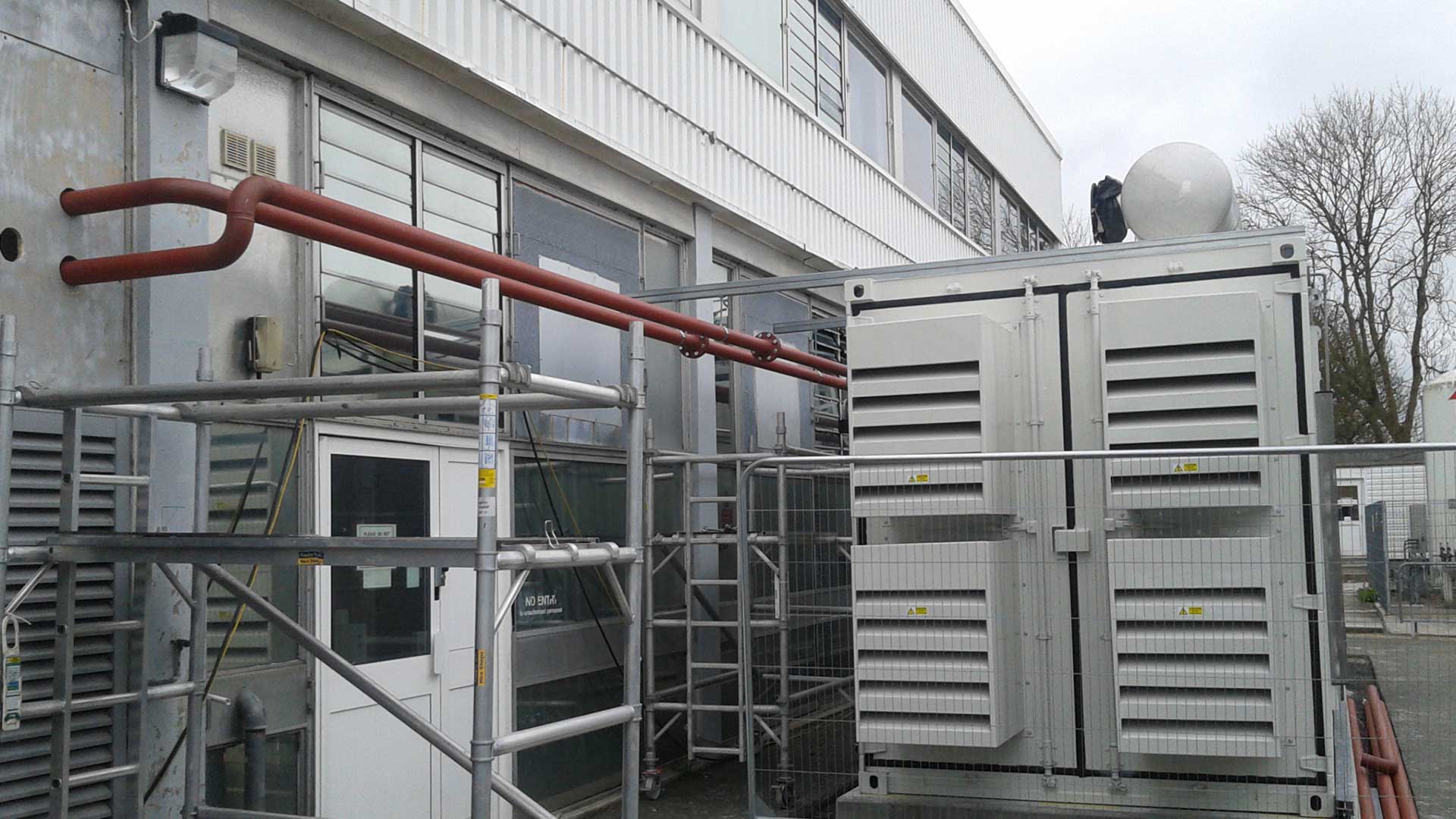Search
Edina supplies two 600kWe natural gas engines for Hywel Dda University Health Board to reduce the rise in energy costs within the NHS Withybush General and Prince Philip Hospitals.





Edina supplies two 600kWe natural gas engines for Hywel Dda University Health Board to reduce the rise in energy costs within the NHS Withybush General and Prince Philip Hospitals.
Welsh government incentive to reduce energy consumption and carbon emissions in leading hospitals Withybush General and Prince Philip utilise Combined Heat and Power (CHP) technology, ensuring the best possible spend on NHS money.
The government incentive forms part of the Hywel Dda University Health Board (UHB) to reduce the rise in energy costs within the NHS. Worth up to £9.3million, the funding will future proof Withybush General and Prince Philip Hospitals to significantly reduce energy consumption, provide long term security of power and achieve high standards of environmental performance.
The project to replace and deliver a new CHP plant at Withybush General Hospital and Prince Philip Hospital was awarded to energy management service provider British Gas. Through a competitive tender process British Gas awarded Edina Group the project to design, supply, install and maintain the two CHP plants.
The scope of work proposed at the central boiler house included the installation of two 600kW MWM TCG 2016C V12 CHP gas engines. The engines included exhaust heat recovery to produce steam, used for hygiene and sterilisation, and engine jacket cooling recovery to produce Low Temperature Hot Water (LTHW).
Both MWM gas engines have the potential to deliver an annual energy saving of up to £250,000 and a carbon emission reduction by 1,500 tonnes. MWM are world renowned for achieving maximum electrical and thermal efficiency, low operating and servicing costs and high reliability and availability.
Edina also containerised the engines at its manufacturing facility based in Lisburn, Northern Ireland and supplied all auxiliary equipment and were both constructed to support all equipment inside such as the silencers. The waste heat recovery steam generator was located in the boiler house.

The Hywel Dda University Heath Board is committed to reducing its carbon emissions and energy costs and has entered into a partnership project with British Gas and its partners. Edina’s CHP installations and on-going maintenance obligations is a key part of this project that will support the Health Board in meeting its carbon and energy saving objectives.
Between the two hospital sites there were a number of challenges that needed to be addressed. Within the Prince Philip Hospital the removal of an existing and defunct CHP plant from an operational boiler house required isolation from the main system and the removal and replacement of the glass façade of the building itself.
The installation of the new and much larger CHP unit plus its integration within the boiler house was Edina’s next challenge. Additional space had to be factored into the installation of the new equipment making the installation process a particular challenge. Also, the integration needed to anticipate that some existing hospital equipment could not be re-used in their current state, which meant that the Estates department had to replace or repair the items, for example the main incoming gas supply valves.
The new LV cable installed from the CHP unit to the switchgear room was a challenge in itself, requiring trenching into an existing grass bank. The hospital was not able to provide drawings or details of any existing underground services and so the LV cable was installed carefully. This required extra care and hand digging in sections, to ensure that important buried services were not disturbed, which could have led to disruption of the services within the hospital. Once all existing services had been identified, a mini digger could be used to complete the cable trench.
To avoid the risk of interrupted power supply to the hospital, the installation of the new Air Circuit Breaker within the hospital’s existing panel was scheduled during low operational use of the clinics and operating theatres, resulting in the remaining work being completed out of hours.
The installation of the CHP plant at Withybush General Hospital presented similar challenges. In order to install the unit the team constructed a new concrete base slab in an existing busy hospital access road which required careful planning and site management. To avoid the busy day to day operation of the hospital site, the installation was arranged during the weekends to allow the crane access through to the access road during offloading periods.
The hospital also benefited from a new waste heat boiler which required the original boiler house façade to be removed to allow the installation and integration to the existing system.
The Assembly Government and the NHS in Wales are determined to lead by example to reduce the impact on the environment and both hospitals have introduced travel plans to support staff, patients and visitors to travel by public transport, car sharing or by walking or cycling in an attempt build upon the long term environmental strategy of the hospital.
The engine was packaged inside a short container with the gas train. Since the new engine was larger than the previous engine all the elements of the CHP could not be installed inside the container. The solution was to build all the elements in modular form that could fit the limited space and interconnections done on-site. The pump skid for the CHP was made compact to sit outside the container and had to be connected on-site. Similarly the exhaust system housing the silencers and exhaust gas heat exchanger were built in skid frame that was supported from the roof of the container using bespoke supports. The exhaust gas heat exchanger was designed with U tube formation and was fitted with a protective bursting disc. The ventilation system was a bespoke design to fit the limited space above the CHP. The radiators were situated on the floor outside the boiler house on bespoke plinths.
Hospitals by their nature operate 24 hours a day, 365 days a year and need to generate vast amounts of electricity, heat and cooling. Both CHP installations allow for the generation of electricity and heat in a single process, offsetting any additional cost to purchase electricity from the National Grid used for fuel or heating applications.
The investment in both buildings to provide better equipment and energy efficiency measures across the NHS in Wales has reduced carbon emissions and increased the security of power at both sites.
To accompany the CHP installation, NHS Wales has also applied low energy external LED lighting, improved insulation, improved internal lighting controls and movement sensors to further reduce their CO2 emissions.

Client:
British Gas
Location:
Pembrokeshire, United Kingdom
Capacity:
1.2MWe
Operational:
2014
Manufacturer:
MWM
Packager:
Edina
Engine Type:
2 x 600kWe TCG 2016 V12
Primary Fuel:
Natural Gas
Edina CHP sustainability at the heart of leading edge hospital.
Read moreEdina CHP saves over £1million in energy costs for Royal Liverpool University Hospital.
Read moreEdina diesel generation sets supplies largest UK teaching hospital with emergency critical power.
Read more


Copyright © Edina. All Rights Reserved.